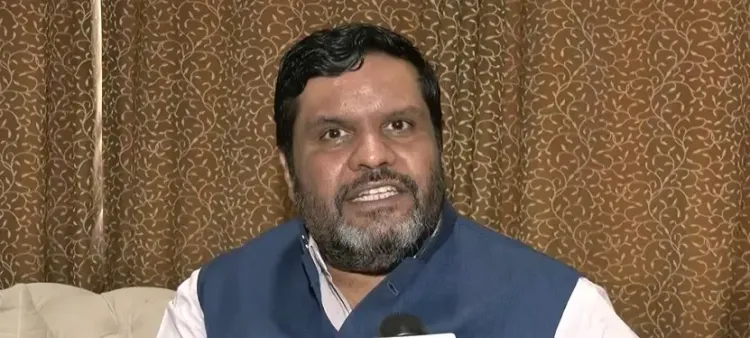Does Sam Pitroda Really Feel at Home in Pakistan?

Synopsis
Key Takeaways
- Sam Pitroda's remarks have stirred controversy.
- BJP's Gaurav Vallabh emphasizes national sentiments.
- The debate highlights differing views on Pakistan.
- Foreign policy discussions are at the forefront.
- National identity remains a critical issue.
New Delhi, Sep 19 (NationPress) The Indian Overseas Congress president, Sam Pitroda, ignited a new political controversy by expressing that he “felt at home” in Pakistan. In response, BJP leader Gaurav Vallabh criticized him, asserting that while Congress may view Pakistan as a welcoming place, for Indians, it is undeniably perceived as an enemy nation.
In an interview with IANS, Gaurav Vallabh reflected, “Sam Pitroda is a pivotal figure who has influenced the Congress party for over 25-30 years. His sentiments about Pakistan as a home are concerning.”
“My feelings differ significantly. No citizen of this nation considers Pakistan a home. To us, it is an enemy state, a hotspot for terrorism that has caused the deaths of innocents in Pahalgam,” he emphasized.
Further accusing the Congress party of harboring anti-national sentiments, Vallabh stated, “If Congress believes Pakistan feels like home, it reflects their mindset. The youth and the citizens of this nation do not share this view. Pakistan has a history of supporting terrorism. We have suffered losses, and in retaliation, we executed Operation Sindoor to eliminate terrorists on their territory.”
“Congress might feel at home there, but we do not. Soon, the citizens will express their discontent through the EVM,” he declared.
Meanwhile, Pitroda, a steadfast ally of the Gandhi family, urged the government to emphasize India’s neighborhood in its foreign policy.
During a conversation with IANS, Sam Pitroda stated, “Our foreign policy should prioritize our neighborhood. Can we enhance relationships with our neighboring countries? They are relatively small and facing significant challenges.”
He acknowledged the issues of violence and terrorism, but asserted, “Ultimately, there is a shared gene pool in the neighborhood. I have visited Pakistan, and I genuinely felt at home. My experiences in Bangladesh and Nepal were similar. I see commonalities in our cultures, and I believe we must learn to coexist peacefully.”
Sam Pitroda, who gained recognition in the 1980s as a technocrat close to former Prime Minister Rajiv Gandhi, has been a trusted advisor to the Gandhi family. His recent comments starkly contrast with previous controversies where he made insensitive remarks regarding India’s diversity and controversially compared South Indians to South Africans.










